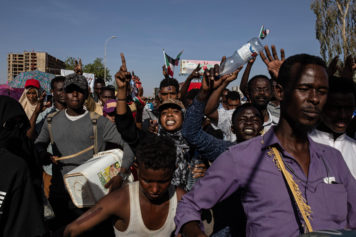Sudan and South Sudan said they would cease hostilities to honor a UN deadline that passed Friday after weeks of bitter border clashes that sparked fears of full scale conflict.
Rival forces remained in a tense standoff across their contested border but both Khartoum and Juba have pledged to seek peace after the UN Security Council on Wednesday threatened sanctions if the fighting continued.
“There’s nothing happening, or let’s hope so,” said South Sudan’s army spokesperson Philip Aguer.
“The SPLA [army] is in a defensive position and have been told today by the commander in chief … not to move and to respect the ceasefire.”
However, Aguer said Sudanese artillery had bombarded the south’s frontline army bases at Panakuach, Lalop and Teshwin earlier on Friday, and that troops remained on alert “monitoring for a possible attack”.
Khartoum claimed that Juba had not stopped hostilities because it continues to “occupy” points along the disputed border.
“Sudan has stopped fighting inside South Sudan in line with a UN resolution, but will continue battling Southern troops who remain on northern territory,” said Sudanese foreign ministry spokesperson Al-Obeid Meruh.
Halted hostilities
Sudanese army spokesperson Sawarmi Khaled Saad said “the other side still has a presence inside our land,” alleging that Juba’s army occupied two points along the border with Darfur, “and this means they haven’t stopped hostilities.
Sudan accuses the South of backing rebels from its conflict-hit western region of Darfur as well as those fighting in South Kordofan state and Blue Nile.
Juba rejects the claims, and in turn accuses Khartoum of backing rebels on its territory, a tactic it used to deadly effect during their 1983-2005 civil war.
The South also accuses Khartoum of occupying several parts of its territory, including the Lebanon-sized Abyei region, claimed by both sides but which Sudanese soldiers stormed last year forcing over 100 000 people to flee southwards.
Troops from the rival armies are dug into fortified defensive positions along the restive border, as officials traded bitter accusations against the other side.
“In Khartoum, the camp is divided between those who want war and those who want peace, unlike South Sudan that has accepted the UN Security Council resolution, so we’ll see if they agree,” Aguer said.
Read the rest of this story on the Mail & Guardian Online


